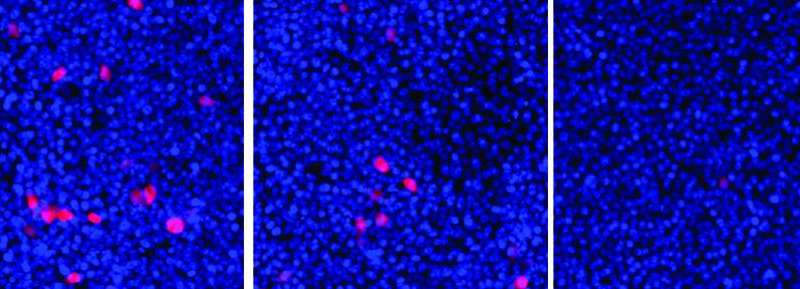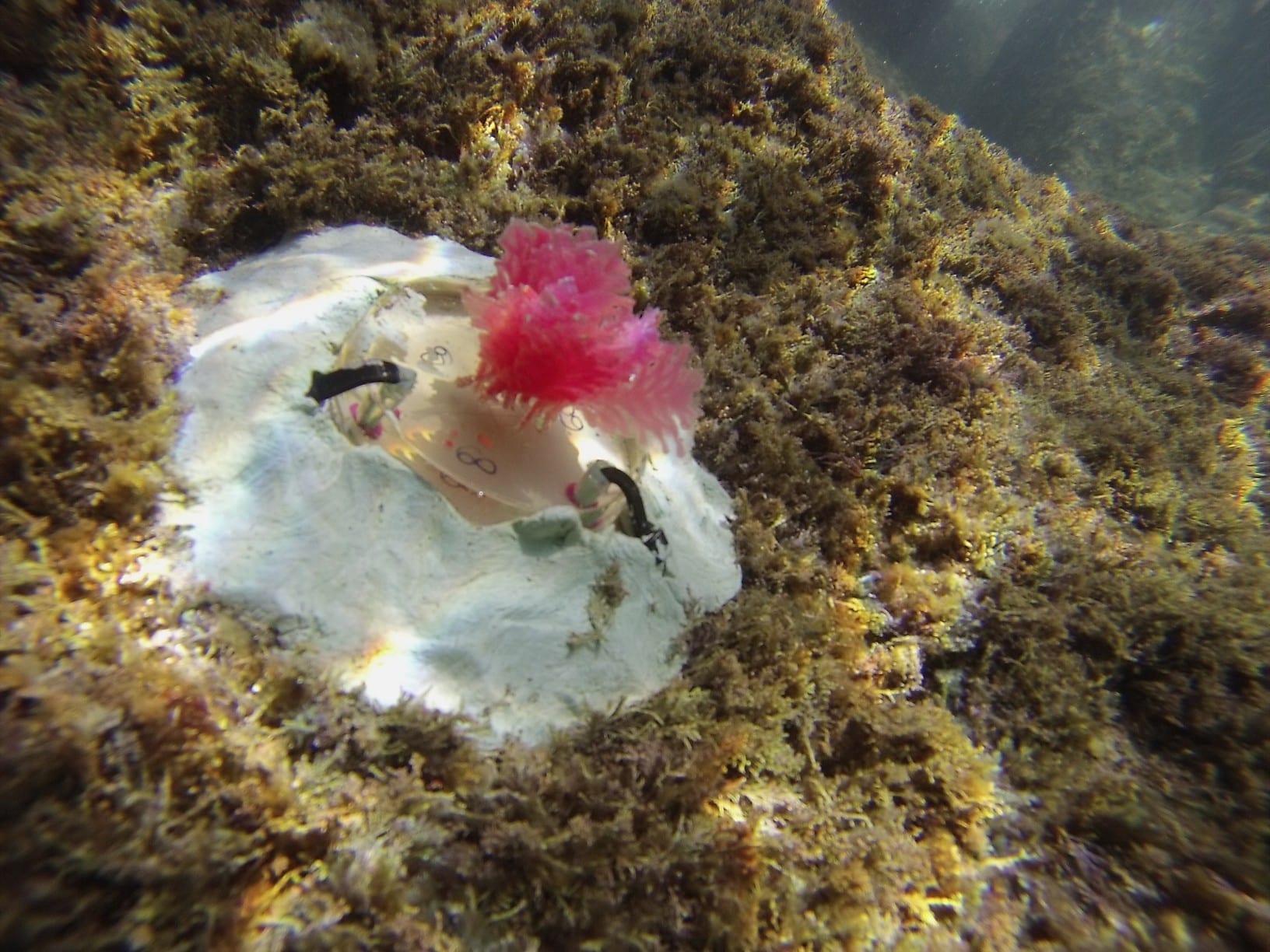
A new antiviral drug candidate inhibits a broad range of coronaviruses, including the SARS and MERS coronaviruses, a multi-institutional team of investigators reports this week in Science Translational Medicine. The findings support further development of the drug candidate for treating and preventing current coronavirus infections and potential future epidemic outbreaks.
Coronaviruses are a genetically diverse family of viruses that infect birds and mammals, with most coronavirus strains limited to infecting only certain hosts. Human coronaviruses, for example, cause up to 30 percent of common colds.
In the last 15 years, however, coronaviruses have demonstrated their ability to jump into new species. Zoonotic (animal) coronaviruses have infected humans, causing severe acute respiratory syndrome (SARS) and Middle East respiratory syndrome (MERS), severe diseases with high mortality rates ranging from 10 percent for SARS to 40 percent for MERS. The MERS-coronavirus continues to cause new infections in the Middle East.
“There’s a real concern that the MERS coronavirus could escape broadly when millions of people visit Saudi Arabia for the Hajj,” said Mark Denison, M.D., Craig-Weaver Professor of Pediatrics and professor of Pathology, Microbiology and Immunology at Vanderbilt University School of Medicine.
But to date, there has been no effective antiviral drug for any known coronavirus, Denison noted.
Denison and his team at Vanderbilt have studied the basic biology of coronaviruses for more than 20 years. In an effort to find chemical tools that would allow them to probe viral replication, graduate student Brett Case screened a series of compounds selected and provided by Gilead Sciences.
Case demonstrated that one of the compounds was highly active against coronaviruses in cultured cells. The finding was a surprise, Denison said, because compounds in the same class (nucleoside analogs) have normally failed to inhibit coronavirus replication.
The compound, called GS-5734, is currently in clinical development for treatment of Ebola virus disease.
Denison’s longtime collaborator Ralph Baric, Ph.D., at the University of North Carolina and his team demonstrated that GS-5734 inhibits SARS-coronavirus and MERS-coronavirus replication in multiple in vitro systems, including cultures of primary human airway epithelial cells, which are the cells infected by respiratory coronaviruses.
The researchers also showed that GS-5734 was effective against a circulating human coronavirus, bat coronaviruses, and bat coronaviruses that are considered “prepandemic” because they can infect cultured human cells.
Using a mouse model of SARS, the investigators demonstrated that both prophylactic (before infection) and early therapeutic (soon after infection) administration of GS-5734 reduced viral load in the lungs and improved respiratory functions.
“This compound shows broad activity against a variety of human and animal coronaviruses and represents an exciting potential therapeutic for a family of viruses prone to emergence from animal reservoirs,” Denison said.
Denison and his team at Vanderbilt will continue to use the compound “as a probe to try to understand the biology of the virus, how and why this drug works, and to identify new targets for inhibiting coronaviruses,” he said.
“This is an exciting example of how pursuing fundamental research to understand the mechanisms of virus replication and pathogenesis can lead to an important compound with therapeutic potential.”
Learn more: New Antiviral Drug Inhibits Epidemic SARS, MERS and Animal Coronaviruses
The Latest on: Coronaviruses
[google_news title=”” keyword=”coronaviruses” num_posts=”10″ blurb_length=”0″ show_thumb=”left”]- $1.7M COVID-19 Fraud: Mount Vernon Mom, Daughter Sentencedon April 27, 2024 at 7:05 am
A mother-daughter duo from Westchester County has been sentenced to prison for defrauding the government of approximately $1.7 million. Alicia Ayers and her mother, Andrea Ayers, both of Mount Vernon, ...
- Covid-19 Pandemic Led To Growing Acceptance Of Doctors Withholding Treatmenton April 27, 2024 at 4:15 am
According to a new study there is a steadily growing acceptance of the view that it could be ethically acceptable for doctors to refuse care.
- Class of 2024 reflects on college years marked by COVID-19, life's lost milestoneson April 26, 2024 at 10:16 pm
For many in the graduating class of 2024, the unrest at campuses across the country over the Israel-Hamas war has marked an emotional end to their college experiences that started amid a pandemic ...
- Former Sheriff's Deputy Convicted of Misdemeanor in Shooting Death of Christian Glasson April 26, 2024 at 6:26 pm
A former Colorado sheriff’s deputy has been convicted of a misdemeanor in the shooting death of a 22-year-old man in distress who had called 911 after his car got stuck in a small mountain community ...
- ‘They’re never forgotten’: Brooklyn cemetery unveils COVID-19 memorialon April 26, 2024 at 3:20 pm
Green-Wood Cemetery in Brooklyn is unveiling a new COVID memorial, offering a space for remembrance and solace to those who lost loved ones during the pandemic. Gustavo Padilla, a gravedigger at Green ...
- Andrew Cuomo agrees to testify to Congress on Covid-19 nursing home advisoryon April 26, 2024 at 2:52 pm
Former New York Gov. Andrew Cuomo, after being subpoenaed last month, has agreed to testify to Congress about his controversial nursing home advisory from the early days of the Covid-19 pandemic, Rep.
- Can Neosporin Protect You From Getting COVID-19?on April 26, 2024 at 11:19 am
A small study recently published in PNAS presents a similar, if lower-tech, idea. Coating the inside of the nose with the over-the-counter antibiotic ointment Neosporin seems to trigger an immune ...
- WHO: Antibiotics Overused in COVID-19 Patients During Pandemicon April 26, 2024 at 8:50 am
The overuse of antibiotics could have exacerbated the spread of antimicrobial resistance, according to the World Health Organization.
- Covid-19 Found in People’s Blood Months After Infectionon April 26, 2024 at 7:57 am
A quarter of people had Covid-19 viral proteins in their blood up to 14 months after infection. These proteins in the blood indicate that SARS-CoV-2 keeps living in tissue reservoirs. The study used a ...
- Acuitas, CureVac settle lawsuit over COVID-19 vaccine patent rightson April 25, 2024 at 2:27 pm
Biotech company Acuitas Therapeutics and Germany-based CureVac have settled Acuitas' lawsuit demanding credit for inventions related to COVID-19 vaccines, according to a filing on Thursday in Virginia ...
via Google News and Bing News










